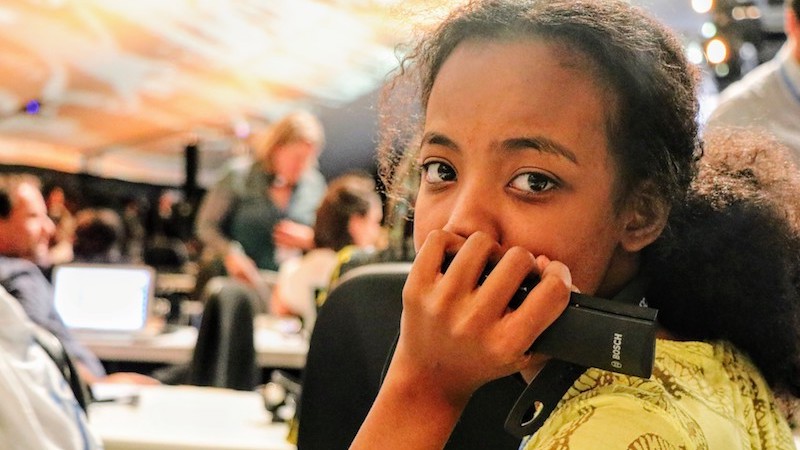Universities from the world’s least developed countries have launched a cooperative programme aimed at ending their dependence on climate experts and expensive consultants from rich countries.
Under the Least Developed Countries Universities Consortium for Climate Change (LUCCC) each university will develop a curriculum on a designated theme, which will then be shared throughout the network.
For example, the University of Dar-es-Salaam in Tanzania will develop a course on climate finance. That will then be adopted across the ten participating countries.
Least Developed Countries (LDCs) are the 48 countries with the lowest human development index in the world and are greatly impacted by climate-related disasters such as typhoons, floods and droughts.
Out of the 48, universities from 10 countries are participating so far: Nepal, Tanzania, Sudan, Bhutan, Mozambique, Uganda, Bangladesh, Gambia, Ethiopia and Senegal.
Sudanese student: ‘I want to study in US to save my country from climate change’
The Paris climate agreement calls for help for developing countries to address climate change through various activities including “education, training and public awareness”.
“What used to happen was that consultants from developed countries would fly to developing countries to do training and research on climate change,” said Saleemul Huq, director of the International Centre for Climate Change and Development at the Independent University of Bangladesh.
“The LDCs challenged this in Paris because we need to strengthen the capacity of our own institutions to do research and provide training at national level, a long-term intervention.”
He said it was shortsighted to pay again and again to import skills from developed countries when every country has one or more universities with the ability to train and conduct research that can empower its citizens.
Climate Weekly: Sign up for your essential climate news update
“Through our universities young people will come up with skills on climate change,” he told Climate Home after the project was launched in the Ugandan capital of Kampala on June 26. “We just need to enhance the capacity of our universities.”
The initial phase of the project – developing curricula – has no external funding, said Huq. “We may have little resources but it doesn’t mean we don’t have resources at all,” he said. “For now the institutions are sharing information and that doesn’t require funding.”
“Students need guidance not money,” he added.
It is not just the university students that will benefit but also the communities impacted by climate change, according to David Mfitumukiza, a senior lecturer at Makerere University in Uganda.
“It’s the communities that are impacted by climate change and they need to be armed with knowledge to help them cope with the impacts,” he said.
He said there is a gap between the information produced by universities through research and the communities it is meant to help.
“Students are our entry point and they will help us reach out to communities, which we are also targeting with this programme,” said Mfitumukiza.
LUCCC was launched on the first day of the 11th International Conference on Community-based Adaptation which also took place in Kampala.
LUCCC also aims to provide research that can galvanise the voice of LDCs in international climate negotiations, where they are ofter outgunned by western countries with enormous scientific and academic institutions to call on.
